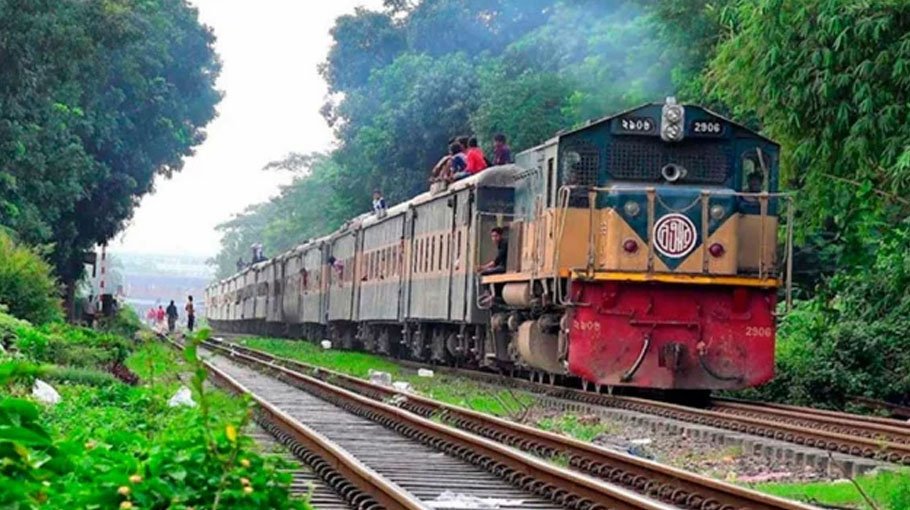Rail transit deal with India on mutual benefit

Bangladesh is likely to gain an enormous economic benefit by transporting goods and passengers under the new rail transit agreement with India, experts said.
Bangladesh and India signed a memorandum of understanding (MoU) on June 22 this year to utilise the rail network of both the countries.
The agreement will ensure transit facilities for transport of Bangladeshi goods to Nepal and Bhutan through India’s railway network while it will help strengthen connectivity between India’s north-eastern states.
Under the agreement, train service between Rajshahi and Kolkata will also resume after 77 years which will be the fourth inter-country train between Bangladesh and India.
Besides, the important aspect of this agreement is to provide the facility for transportation of goods and passengers on 12 routes in seven states known as ‘seven sisters’ from Kolkata through Bangladesh.
Under the new deal, there will be 14 sections with a total length of 1,275 kilometres (km) of rail line. Out of this, 861 kms will be inside Bangladesh, 202 kms in Nepal and 212 kms in the north-eastern region.
When asked, Director General of Bangladesh Railways Sardar Shahadat Ali told The Bangladesh Post, “The MoU has been signed mainly to resume train service between Rajshahi and Kolkata and establish rail transit network. The distance from Rajshahi to Darshana is longer than the distance from Darshana to Kolkata or Sealdah. As a result, we will get more revenue here.”
About rail transit or transshipment, he said, “Agartala route is
outside the interchange point we have with India. Trains have been operated through this route and trial run has been done. Through this route, India will be able to transport goods whenever it wants from Chattogram port. We have such preparations.”
He further said there will be no direct transit to Kolkata through Agartala-Akhaura because there is a metre-gauge track from Akhaura to Tongi.
“We are planning to construct an Inland Container Depot (ICD) at Nimtali on the southern side of the Padma Bridge. From there, goods will be transshipped to Kolkata. Whichever freight or passenger train runs from India, we will get revenue.”
The Bangladesh Trade and Tariff Commission will fix the rate, he said, adding that it will benefit our country. “There is no scope to make individual profit here. However, we get more profits in freight trains than passenger trains.”
Communication expert Shamsul Haque said that this is actually an ‘open door’ policy. The key to developing this relationship is to provide opportunities for equality-based development on the basis of fairness.
“If anyone legged behind, this policy will not work. Our country has an excellent geographical location for the development of regional relations. Our coastline provided opportunities for trade with the outside world.”
He said India’s seven sisters, Nepal or Bhutan do not have this opportunity. So, Bangladesh can take advantage of its geographical location as its communication infrastructure is multidimensional, he added.
Center for Policy Dialogue distinguished fellow Mostafizur Rahman told media, “If the new transit agreement is implemented, India will get the facility of direct rail transport of goods through Bangladesh.”
“This will greatly reduce the cost of transportation of goods in India. So, taking into account the amount of money, they are saving, they can share the benefit.”
For example, he further said had India previously spent Tk 30 on transport and now she has to spend only Tk 10 for using our rail line. In that case, sharing their savings with us will result in mutual benefits.



